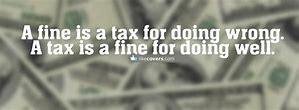20th April, 20th July, 20th October and 20th – 31st January… No, I haven’t gone mad! Many business owners tremble when these four dates are mentioned because it is when quarterly taxes are due and a portion of the income earned with blood, sweat and buckets of tears goes straight into the tax man’s pocket. The economy is well on its way to recover but there are still some sole-traders out there whose businesses continue to struggle and the thought of quarterly taxes or payment of their monthly Social Security contribution can send them into a panic.
One of the first things I advise new clients to my office is no matter how difficult it gets, they must always make sure to pay Social Security and the Tax Offices within established deadlines because failure to do so can set off a series of events that can snowball and leave the business owner with a mountain of ever increasing debt when late-payment interest is added on top of an existing debt. What can one do though if it is impossible to make payments on time?
If you find yourself in this situation, non-payment followed by burying your head in the sand is definitely not the solution but there is a way around the problem that allows you to pay taxes or contributions due and not cripple your business in the meantime. You can take advantage of the option to pay off these taxes in installments.
The National Tax Office: This route is only applicable for certain tax forms:
- Tax Forms 130 and 131, which refer to profit and loss under the accounting or fixed tax (Módulo) systems
- Tax Form 100, which refers to Personal Income Tax. If the result is to pay additional tax, it can be split into two payments, the first being due by the 30th June and the second between the 1st and the 5th November
- Tax Form 200, which refers to Corporate Tax. In this case, the resulting tax can be deferred.
Those tax forms that record retentions to be paid on behalf of professionals or landlords which are common to most business owners unfortunately cannot be paid in installments or deferred. This is because this money has already supposedly been received, therefore there is no excuse for not being able to meet these payments. The Tax Office does not allow this model for payments towards Corporate Taxes and recorded on Tax Form 202.
Social Security: Everybody knows this is probably the one payment most business owners complain the most about due to the high amount payable each month, however, if you find yourself in financial trouble, most contributions can be paid in installments but as before not all come under this system
- Fees paid in concept of work-related accidents and professional illnesses
- Contributions the business owner is responsible for if he/she has employees under contract
The Canarian Tax Office: This agency works in a slightly different matter (of course!) and tends to be more thorough, requiring additional information from the business owner to assess the overall situation of any IGIC (the Canarian equivalent of VAT) due. In this scenario, business owners settle the difference between the IGIC received from their customers and the IGIC they pay their suppliers, so their view is that if the business owner’s customers do not pay their bills, they will obviously have difficulty in paying the tax due. In this scenario, the tax office may demand proof of unpaid invoices but in most instances, they quietly accept applications.
In these cases, it is possible to apply for payment in installments at two crucial moments in the collection process:
- When the voluntary period begins (periodo voluntario)
- When the debt enters the enforced payment phase (vía ejecutiva) and usually there is only a small window of 15 days from receipt of this notification in which the application will be considered
The Administration must confirm whether the application has been accepted or not and from there payment is due on a monthly basis and each installment may not be inferior than 30 euros. Restrictions of course apply because the Administration may determine the business owner is not a good candidate and will likely default on payments due and also depending on the extent of the existing debt, they may demand guarantees so that if the business owner does not fulfil their obligation, the debt can be recovered elsewhere. In most cases, debts that do not reach the 30.000 euro threshold do not require additional guarantees.
As you can imagine, interest on the amount due will apply because even though it is the Administrations best interests to make allowances to ensure the taxes and/or contributions are eventually paid, they are not going to be out of pocket so in most cases, the established rate of delayed payment interest of 3,75% is added onto the existing debt.
At any rate, hopefully this article will prove useful if at any time you need a little breathing space when it comes to meeting tax deadlines. It is always better to take decisive steps forward instead of ignoring an obvious problem and getting into even more financial strain further down the road.

As seen in The Voice Fuerteventura


